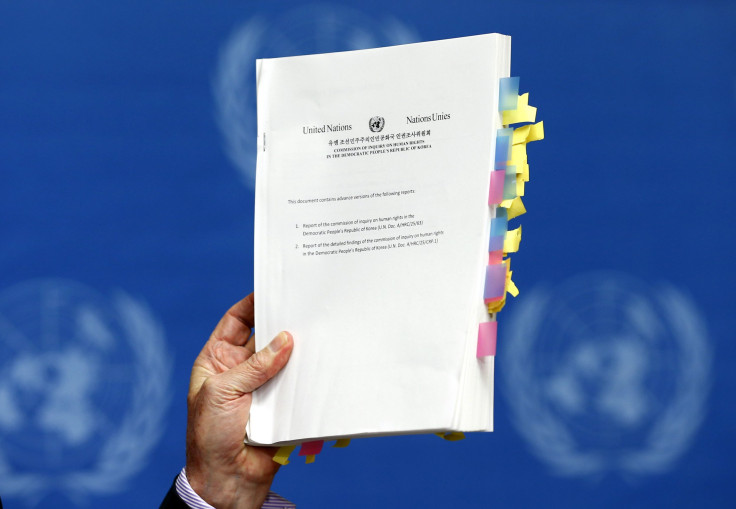North Korea Human Rights Association Attempts To Debunk Reports of Rights Violations

North Korea has released a 53,000 word English translation of a report debunking what officials consider false reports of abuse and human rights violations. The report was issued by the country’s Association for Human Rights Studies, and the state-run Korean Central News Agency blamed an “anti-North Korean human rights racket” for the allegedly false reports.
The New York Times reported the “all-inclusive” report was compiled to “lay bare the false and reactionary nature of the reckless anti-North Korean human rights racket and to wipe out the prejudice and misunderstanding” to which the country falls victim, KCNA said. The report fails to mention the widely reported cases of prisoner gulags, and arbitrary arrests and punishments that have been documented by experts and defectors.
Instead, the report says North Korean citizens enjoy human rights that are contrary of their international reputation like freedom of speech, freedom to practice religion and protection from torture.
Several foreigners have been detained in North Korea, including the Korean-American Kenneth Bae for what many say stem from his religious affiliations as a practicing Christian and his attempts to introduce the religion to North Koreans in his role as a missionary based in China.
Additionally, North Korea’s egregious human rights issues were highlighted most recently by the United Nations, in a report earlier this year confirming and describing the nation’s “widespread, systematic and gross” human rights violations through several interviews with defectors and investigators. Among the most graphic were details of concentration camps reserved for those exhibiting political or ideological opposition in which torture, rape and executions were reported.
© Copyright IBTimes 2025. All rights reserved.






















